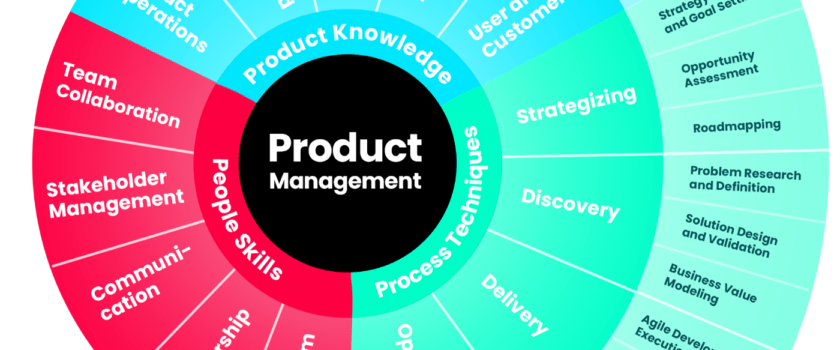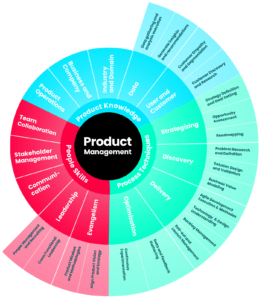
In being competitive whether job hunting or wanting to advance within their organization, company, or startup, product managers must regularly upgrade their product manager skills. A successful project manager is always interested in learning about new technologies and agile processes that can help them be better product and people managers, as well as better colleagues and coworkers. Use this article as a checkpoint to brush up on your skills before seeking for product management employment if you’re new to the field.
 As a result of the rapid development of new technology items, product managers’ roles are constantly changing. These experts must be capable of managing teams of engineers and developers as well as guiding the development of a product from conception to completion. These responsibilities necessitate both hard and soft abilities, with analytical skills, technological expertise, and communication skills among the most crucial. We’ll go over the top talents product managers need to be successful and productive in their jobs in this article.
As a result of the rapid development of new technology items, product managers’ roles are constantly changing. These experts must be capable of managing teams of engineers and developers as well as guiding the development of a product from conception to completion. These responsibilities necessitate both hard and soft abilities, with analytical skills, technological expertise, and communication skills among the most crucial. We’ll go over the top talents product managers need to be successful and productive in their jobs in this article.
Top Product Manager Skills: Hard Skills
Product management isn’t brain surgery, but it’s also not for the faint of heart. To succeed in their roles, PMs must educate themselves on the finer details of product creation and management, such as:
A talent for coding
Companies are on the lookout for a product manager with coding experience. Although your work will not always be absolutely technical, it is critical that you grasp what your engineers and data scientists are saying and doing.
Find out what coding languages are required for your current or desired career. Companies employ a variety of coding languages in the real world, and you should learn the ones that are most relevant to your product or line of work. JavaScript is simple to learn and widely used on the internet, so it’s a good place to start. Online resources such as Codeacademy and freecodecamp.org can assist you in honing your JavaScript and other coding skills.
You don’t have to be a code whiz. It is not your duty to write code. A rudimentary understanding of coding, on the other hand, will enable you to comprehend the work your technical staff does and communicate the nature of that work to the rest of your team. It will also help you understand how much work the technical team will have to do to make your request a reality, allowing you to budget time and resources correctly.
Competencies in customer service and market research
Product managers who are good look beyond their product. They pay attention to what their current users want and look for new target areas to develop into. They also keep a close eye on their rivals in order to stay one step ahead.
First and foremost, familiarize yourself with your chosen field. Determine who your target market is, what their biggest pain issues are, and who your main rivals are. To understand more about your target, go to where they like to hang out on the internet. Starting with relevant forums and social media websites is a fantastic idea. Look at your competitors’ websites, blogs, and reviews when you’re surfing the web. Take note of what they and their consumers have to say about their brand.
Make it a habit to stay up with what’s going on with your users and competition from the start. You’ll have a better understanding of what customers want and what others are offering, allowing you to build the greatest product for the best product-market fit. Learning how to do more formal user research is also beneficial. This includes determining the various research approaches available for extracting insights from user data and determining how to apply that knowledge to improve your product’s user experience.
A working knowledge of the user life cycle
 Great product managers are well-versed in all aspects of the product development process. To be truly efficient in your position, you must also consider another process: the user life cycle. Product-Driven Growth Flywheel is a user life cycle framework for growing your business by investing in a product-led user experience. It is divided into four user parts that are arranged in a logical order.
Great product managers are well-versed in all aspects of the product development process. To be truly efficient in your position, you must also consider another process: the user life cycle. Product-Driven Growth Flywheel is a user life cycle framework for growing your business by investing in a product-led user experience. It is divided into four user parts that are arranged in a logical order.
- Evaluators: These potential customers are interested in your goods but aren’t yet convinced of its worth.
- Beginners: These users have only recently begun to engage with your product and have not yet developed long-term usage habits.
- Regulars: This group uses your key features on a regular basis and is curious about what else your product has to offer.
- Champions: These super consumers rely on your product intensively and spread the word about it to others.
The Flywheel framework compels you to put your users first. To make the flywheel spin faster, you take customers through the stages of the customer journey, nurturing them from first awareness to your most devoted product enthusiasts. What’s the end result? A positive feedback loop that encourages acquisition and expands the business.
The ability to create a product plan is a valuable skill.
It’s worthwhile for product managers to improve their map-making abilities at least, their product roadmap-making abilities. Why? Because your product strategy will only succeed if your entire company buys into it and follows it. While it may appear that you are in multiple places at once, you are only one person. You can’t stare over every employee’s shoulder to ensure that every decision they make is in the best interests of your product.
A product roadmap outlines your product strategy and serves as a roadmap for product development, release, and expansion. When questions about the construction of new procedures and solutions occur, teams should refer to this timeline.
You are the enforcement of your product’s law, which is the product plan. Even if you force everyone to tattoo your product roadmap onto their body (please don’t), folks will wander from it on occasion. To keep everything on track, you’ll need to communicate with other departments. Most inquiries may be answered by referring to your product roadmap, which can save you many hours of presenting topics that are already known.
User onboarding is something you should be familiar with
It’s in a product manager’s best interests to keep up with the current onboarding trends. User onboarding can make or break a product, therefore knowing the basics should be one of the first things a product manager learns. Your game-changing, first-of-its-kind product will fail if people abandon it after five minutes because they can’t locate their aha moment. If you don’t have any users to begin with, you can’t expect to turn them into big-spending power users.
You don’t need to know how to construct product tours from the ground up to create amazing onboarding tools that take users straight to the value moment. UI/UX patterns like tooltips, modal windows, pins, and more may be used to create code-free and hassle-free product tours. Familiarize yourself with the aspects that contribute to a pleasant, value-driven product tour.
Apply for remote product manager jobs
Top Product Manager Skills: Soft Skills
Considering robots haven’t yet surpassed humans, you’re likely to be working with actual people who are dealing with real challenges. Because exceptional book smarts won’t help you resolve interpersonal conflicts, you’ll need to hone your social skills in order to be a successful product manager.
Interpersonal skills
Product managers must have outstanding interpersonal skills in addition to strong communication abilities in order to effectively influence and lead the people with whom they work. Product managers are constantly attempting to get others on board with their product vision, from customers to stakeholders to team members. Presentation, emotional intelligence, active listening, teamwork, and negotiating abilities are all important interpersonal skills for product managers to have.
Ability to communicate
Product managers spend a lot of their time communicating in some way. These professionals must regularly talk or write in a way that conveys their objectives and priorities in an easy-to-understand manner. From product meetings to presentations to engaging with clients on their goals and expectations. Product managers must also engage with their teams on a regular basis. This is to provide direction and guidance, as well as to ensure that product development is on track. Product managers won’t be able to accomplish many of their responsibilities efficiently unless they have good communication abilities.
Ability to delegate
Without great delegation abilities, product managers cannot effectively manage a product development team. A development team is frequently composed of multi-functional team members, each of whom is responsible for a certain role in the product’s development. Product managers must be able to recognize each team member’s skills and assign work based on their talents. Delegation abilities include the ability to effectively communicate task requirements, resist micromanaging team members, and check in with team members on a frequent basis to see what worked and what didn’t throughout the execution of a task.
Time management skills
As previously said, product managers are continually dividing their time between various products and projects, as well as reacting to altering priorities.
Product managers can juggle everything on their plate while still completing work efficiently and pushing products to launch with time management abilities. As you understand what works best for you, you can always enhance your time management abilities.
Prioritization skills
To successfully complete projects and fulfill goals and deadlines, product managers must be able to objectively enforce prioritization. Good prioritization abilities guarantee that everyone on the team is always focusing on the most critical task at hand. Thus, keeping the project on track and on schedule.

